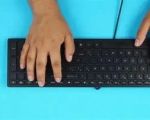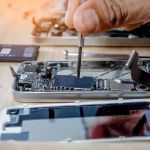How to Install Windows on a New Hard Drive via USB: A Step-by-Step Guide
- 1. Preparing Your Tools for the Installation
- 2. Creating a Bootable USB Drive
- 3. Installing Windows on the New Hard Drive
- 4. Troubleshooting Common Installation Issues
- 5. Enhancing Your Computer Setup After Installation
- 6. Why Choose Ninja Stik for Your Computer Setup Needs
1. Preparing Your Tools for the Installation
Before you start installing Windows on a new hard drive via USB, you’ll need to gather a few essential tools. The process involves setting up your USB drive to be bootable, ensuring the new hard drive is properly installed, and having a working PC to perform the installation. Here's what you'll need:
- USB Drive: A USB drive with at least 8GB of storage space.
- Windows Installation Media: Either a Windows installation ISO or an official Windows installation disc.
- New Hard Drive: The hard drive where you’ll be installing Windows. Ensure it is properly connected to your computer.
- Access to a working computer: You'll need another computer to download the installation files and prepare the USB drive.
Having these tools ready will streamline the installation process, saving you time and effort. Once everything is in place, you can move on to preparing the USB drive.
2. Creating a Bootable USB Drive
The first critical step in installing Windows on your new hard drive is creating a bootable USB drive. This drive will hold the Windows installation files and allow your computer to boot from it to begin the installation process.
Follow these steps to create a bootable USB drive:
- Download the Windows Media Creation Tool from the official Microsoft website.
- Launch the tool and select “Create installation media (USB flash drive, DVD, or ISO file) for another PC.”
- Choose your language, edition, and architecture (usually 64-bit).
- Insert your USB drive into the computer and select it as the destination for the installation files.
- Follow the prompts to download the Windows installation files to the USB drive.
Once the tool finishes creating the bootable USB drive, you're ready to move on to installing Windows on the new hard drive.
3. Installing Windows on the New Hard Drive
With your bootable USB drive prepared, you can now proceed with installing Windows onto the new hard drive. Here’s how to do it:
- Insert the bootable USB drive into your computer and restart it.
- Enter the BIOS/UEFI settings (usually by pressing the F2, F12, DEL, or ESC key during startup).
- In the BIOS/UEFI settings, change the boot order so that the computer boots from the USB drive first.
- Save your changes and exit the BIOS/UEFI settings.
- Your computer will now boot from the USB drive and begin the Windows installation process.
During installation, you will be prompted to select the new hard drive where you want to install Windows. Choose the correct drive, and Windows will automatically format and install the necessary files. Follow the on-screen instructions to complete the process.
Real-life story: John, a DIY enthusiast, followed these steps when he decided to upgrade his laptop with a new SSD. After a smooth installation process, he was able to enjoy a much faster and more responsive system, all thanks to a clean Windows installation on his new hard drive.
4. Troubleshooting Common Installation Issues
Sometimes, issues can arise during the Windows installation process. Here are a few common problems you may encounter, and how to resolve them:
- Windows installation not detecting the new hard drive: Make sure the hard drive is properly connected. You can check this in the BIOS or UEFI settings. If the drive is not listed, try re-seating the connections or using a different SATA port.
- Bootable USB not recognized: Ensure the USB drive is set as the primary boot device in the BIOS/UEFI settings. Also, check if the USB drive is formatted correctly and has the installation media files on it.
- Installation hangs at a certain point: This can happen due to faulty installation media. Try creating a new bootable USB drive using the Media Creation Tool and restart the installation.
These troubleshooting steps should help you resolve common issues and continue the installation process without much hassle.
5. Enhancing Your Computer Setup After Installation
Once Windows is successfully installed on your new hard drive, you can take a few additional steps to ensure your computer runs smoothly and efficiently:
- Install the latest drivers: Make sure to install drivers for your hardware components, such as graphics cards, sound cards, and network adapters.
- Update Windows: Run Windows Update to ensure your system is fully updated with the latest security patches and features.
- Optimize startup programs: Disable unnecessary startup programs that can slow down your system’s performance.
By optimizing your system, you’ll enjoy a smooth and fast computing experience every time you use your new setup.
6. Why Choose Ninja Stik for Your Computer Setup Needs
At Ninja Stik, we provide high-quality computer tools and resources to help you optimize your PC setup. Whether you’re upgrading your hardware or installing Windows on a new hard drive, our tools and guides can help ensure everything runs smoothly.
If you're looking for a reliable USB drive to create your bootable installation media, or need additional tools for your next DIY computer upgrade, visit Ninja Stik for the best in computer setup products.





























